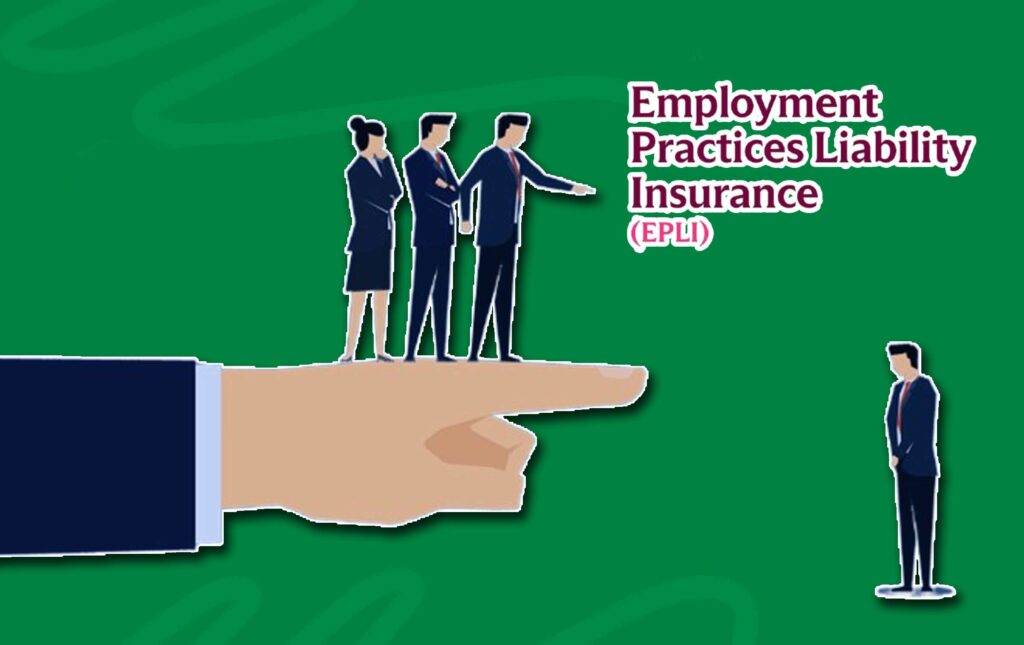Employment practices liability insurance (EPLI) is a type of policy product made to protect employers against claims made by employees for illegal acts such as wrongful termination, discrimination, harassment, or retaliations. It helps to pay for the legal expenses of defending your business from employment related issues.

Employment practices liability insurance will help protect your business from different claims by your former or current employees and even job applicants. It’s a very essential part of your small business insurance policy. Small business such as retail shop, doctor’s office, contractor and restaurants could all face employment liability claims. You can purchase the policy today and protect your small business financially from different kinds of lawsuits
What Does Employment Practices Liability Insurance Policy Cover?
These policies are written to cover a wide range of employee practices claims. And they include;
- Age discrimination
- Disability discrimination
- Employee benefits mismanagement
- Racial discrimination
- Sexual discrimination
- Sexual harassment
- Unequal compensation
- Unlawful compensation
- Slander and libel
- Privacy invasion
- Mental or Emotional distress
- Breach of contract of employment
- Wrongful demotion or termination
The coverage may also cover inappropriate workplace conduct claims such as failure to promote, defamation, failure to rehire and many more.
What Employment Practices Liability insurance does not cover?
Below are some of the events that employment practices liability insurance does not cover;
- Dishonest acts
- Intentional acts
- Bodily injury claims
- Property damage
- Employee lawsuits over workplace injuries
- libel lawsuits and third-party slander
- Professional negligence
Who should purchase Employment Practices Liability Insurance?
It is advisable to purchase this policy if you have employees. It is usually sold as an optional coverage. This means you will have to add it to your business policy. The policy may apply to different employees who work for your organization. This includes;
- Part-time
- Volunteers
- Full-time
- Independent contractors
- Former employees
- Vendors
- Employment candidates
- Seasonal
- Temporary
Generally, regardless of the industry, any business with more than one employee or that deals with the public should consider this coverage. A company can be sued for wrongful acts either externally or internally. And EPLI coverage will help to protect the organization’s financial position.
How much Does Employment Practices Liability Insurance Cost?
According to Insureon, the average cost of this liability insurance policy is $2,185 in a year. The cost of your business’s EPLI (Employment Practices Liability Insurance) will vary based on several factors, including your industry, revenue, number of employees, past claims history, hiring and termination practices, and whether you have established employee policies and procedures in place. The percentage of employees that have left or turned over your company may also influence the cost of the policy.
You can purchase employment practices liability insurance as an add-on to a general liability policy or a business owner’s policy. You can also go for standalone policies. Small businesses can also combine this coverage with their directors and officers insurance. Director and officer insurance is another managed liability insurance designed to protect officers and directors of an organization if they get sued by customers, employees, or vendors.
How to Purchase the Best Employment Practices Liability Insurance
Different small businesses choose the cheapest insurance policy, but that can be a big mistake. They should first know their risks with an insurance expert who understands EPLI coverage. After spotting potential risks that can affect the company, the company can then tell the expert to help gather quotes from various insurers to compare and find the best fit.
To reduce the risk of an employment practices liability claim, employees can consider the below steps:
Create an Employee Handbook:
Outline workplace policies, rules, procedures, and how to handle complaints and discipline. This handbook should contain an equal employment opportunity statement.
Define Job Roles:
Write clear job descriptions for all the positions in the organization, detailing required skills, qualifications, and performance expectations.
Conduct Performance Reviews:
Ensure you regularly review employee performance, document the results, and put them in the employee’s file.
Screen Candidates Carefully:
Develop a hiring process that removes unsuitable applicants before the interview stage.
Use a Good Employment Application:
Create an application that includes an equal employment opportunity statement. And mentions that employment is “at-will.” This means it can be ended at any time for any reason. Avoid asking for age-related details like the graduation dates.
Conduct Background Checks:
Always check the backgrounds of job applicants.
You have toestablish a policy against harassment, substance abuse, and discrimination. And maintain an open-door policy for reporting violation issues without fear. Finally, set up a system to document employee issues and how they were resolved.



